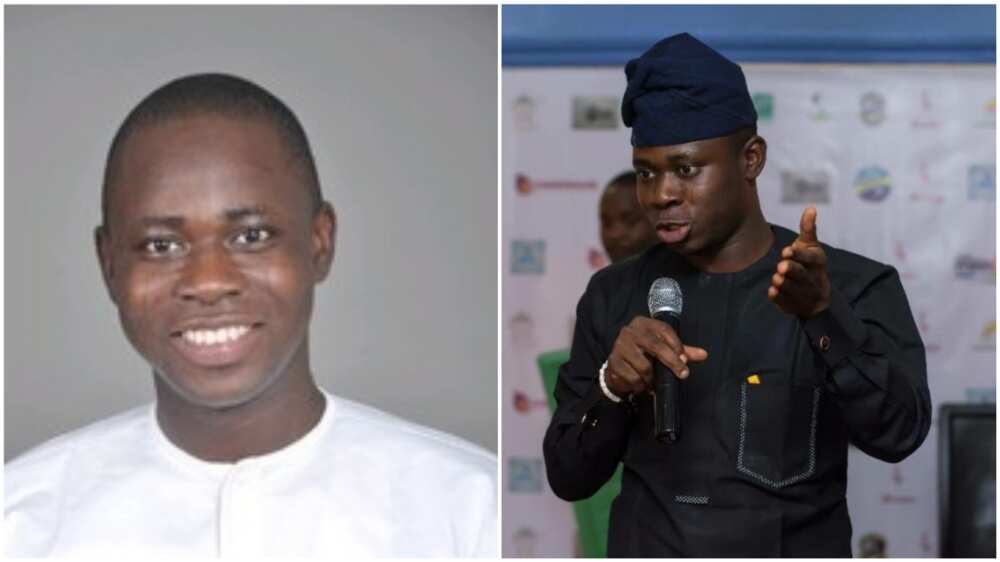Hackathon: Leveraging Civic Tech Solutions To Address Nigeria’s Electoral Challenges, by Abideen Olasupo
Editor's note: In this piece, Abideen Olasupo took us through some of the success stories and importance of the use of technology in the Nigerian electoral practice citing the BVAS as a groundbreaking reform for Nigeria.
PAY ATTENTION: Click “See First” under the “Following” tab to see Legit.ng News on your Facebook News Feed!
This year, the world creativity and innovation week kicked off on 15th April to eventually climax the World Creativity and Innovation day 2022, with the theme “Collaboration” to promote collaborative effort to promote Creativity and innovation in problem-solving, especially in the context of economic, social and sustainable development.
One of such creativity in this era of new media is the deployment of modern technology to promote peaceful and inclusive societies for sustainable development, provide access to justice for all, and build effective, accountable, and inclusive institutions at all levels.

Source: Facebook
Increasingly, Technological innovation and creativity are providing a new impetus for not just economic growth and job creation but the solution to critical institutions of democracy.

Read also
Occupational change: How Delta community developed other professions from fishing to survive due to oil spill
Recent elections have increasingly revealed the need to explore more civic technological solutions to address Nigeria’s electoral challenges, especially around voter apathy and voter merchandising.
PAY ATTENTION: Follow us on Instagram - get the most important news directly in your favourite app!
Thus, there is a need to explore the possibility of expanding technological opportunities for election stakeholders including the Independent National Electoral Commission, Nigerian Security agencies, and various categories of voters like Women, Youth, and People with Disability.
In the context of democracy, civic technology provides an avenue to deploy critical digital tools that make it easier for citizens to organize and mobilize on matters of governance and also to engage with those in power. Thus, there is no doubt that, if effectively deployed, innovative technologies will go a long way in serving as a succor in strengthening democratic processes and promoting inclusive decision-making.
Thus, it is not necessarily novel to see Civil Society Organisations (CSOs) initiative and supporting Hackathon projects and challenges to harvest social innovative solutions mainly from young Nigerians in an attempt to solve one governance challenge or the other.
Hackathon in recent times has brought together young social innovators and developers to develop and share ideas, build skills and connect with others working towards a solution-oriented goal.
For instance, Brain Builders Development Initiative, a youth-led organization, under its YVote Naija project initiated a Civic Tech Hackathon to identify civic-tech solutions to enhance citizen participation in the electoral process in Nigeria.
Young social innovators developed interesting technological solutions around electronic voting using cloud computing and blockchain technology which to a large extent will eradicate the use of ballot papers. It is imperative to add that Kaduna State successfully piloted electronic voting during its Local Government elections last year.
Similarly, the Hackathon also unearth civic tech solutions that could be deployed in grassroots communities without internet using Unstructured Supplementary Service Data (USSD) to report critical incidents in the electoral process.
Other technological solutions with huge potential for improving electoral safety have to do with using Artificial Intelligence (AI) to forecast locations with potential violence in order to build early warning systems, especially before elections.
While not all technological solutions could fit into every context, there is always an opportunity to explore solutions that could be further developed and deployed during the national, state, and even Local Government Area elections. Just the way Kaduna State deployed electronic voting in its LGA polls, technological solutions can be deployed at a smaller scale in order to test its efficiency.
Recall that the now celebrated Bimodal Voter Accreditation System (BVAS) was first piloted in a Bye-election for Isoko Constituency By-election in Delta state where its challenges were tracked and updated before being deployed for the Federal Capital Territory Area Council elections and then to other Governorship elections. Now the electoral commission is set to deploy over 200,000 BVAS devices for the 2023 general elections.
Beyond the electoral process, young innovators in many cases have developed innovative solutions to track budgets, social auditing, and fight corruption. In most cases, these solutions either do not get the right support or are developed to work on a larger scale.
Civic Technology provides Nigeria especially democratic institutions, security agencies, and Civil Society Organisations an opportunity to learn, relearn and unlearn in a bid to improve our democratic process.
Just like Nigeria’s electoral commission replaced the Automated Biometric Identification System (ABIS) with the Automated Fingerprint Identification System (AFIS) flag double registration while also replacing the Smart Card Reader with the BVAS, there are opportunities to replace a lot of analog systems to digital technological civic solution to enhance more transparency in our democratic process.
Disclaimer: The views and opinions expressed here are those of the author and do not necessarily reflect the official policy or position of Legit.ng.
Your own opinion articles are welcome at info@corp.legit.ng— drop an email telling us what you want to write about and why. More details in Legit.ng’s step-by-step guide for guest contributors.
Contact us if you have any feedback, suggestions, complaints, or compliments.
Source: Legit.ng




